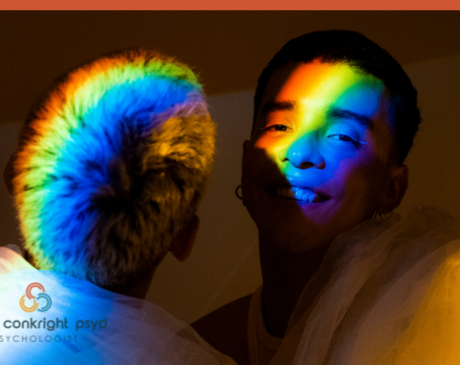When to Seek Couples Therapy: Red Flags You Shouldn’t Ignore

Relationships are not always smooth sailing. There are moments of joy and love, but also times of challenge and misunderstanding. It’s easy to ignore early signs of trouble, but doing so can allow issues to grow deeper, making resolution more difficult. That’s where couples therapy can be a lifeline. Today, I’m going to walk you through the signs that indicate when it’s time to consider couples therapy.
What Is Couples Therapy and Why Does It Matter?
Couples therapy provides a structured space for partners to discuss issues, understand each other better, and develop tools to resolve conflicts. Seeking therapy is not an admission of failure; rather, it is a proactive step towards strengthening your relationship. Whether you’re facing serious conflict or just feeling a sense of disconnect, early intervention can help prevent bigger problems down the line.
Why Do Couples Wait Too Long?
Many couples wait until their problems are overwhelming before seeking help. Some think they can handle everything on their own, while others are afraid therapy implies a failing relationship. In reality, couples therapy is about addressing small cracks before they turn into gaping chasms. Early intervention can save years of struggle and unhappiness.
Red Flags That Indicate It’s Time for Couples Therapy
While every relationship is unique, there are several signs that suggest professional intervention may be beneficial. If you or your partner are experiencing any of these, it’s worth considering couples therapy to get things back on track.
1. Communication Breakdown
Communication is the bedrock of any relationship. When you find that your conversations consistently end in misunderstandings, arguments, or complete silence, it’s time to address the issue. Poor communication can manifest in various ways: avoiding discussions about feelings, dismissing each other’s concerns, or even constant bickering over small things.
Couples therapy helps to uncover the underlying reasons for these breakdowns and provides strategies to rebuild healthy communication patterns. In therapy, couples can practice open, honest, and non-judgmental conversations in a safe space.
2. Emotional Distance
Has your partner started feeling more like a roommate than a lover? Emotional distance often starts subtly but can grow into a significant problem if left unchecked. This can include less physical intimacy, emotional disconnection, or a general lack of interest in each other’s lives.
Therapy can help you and your partner reconnect emotionally by exploring why the distance exists and finding ways to bring closeness back into the relationship.
3. Trust Issues
Trust is crucial in any partnership. If there’s been a betrayal—whether through infidelity, lying, or broken promises—trust can be severely damaged. It’s tough to rebuild trust without external support, especially if both partners are feeling hurt and vulnerable.
Couples therapy can serve as a neutral ground where both partners can express their feelings about the betrayal and work on restoring trust with the help of guided exercises and dialogue.
4. Frequent Arguments About the Same Issues
Do you find yourself having the same argument over and over again without resolution? This repetitive cycle is often a sign of deeper issues that haven’t been addressed. Sometimes, it’s not even about the argument itself, but about what the conflict represents—unmet needs, frustration, or a feeling of being unheard.
Therapy can help couples break this cycle by uncovering the root cause of the recurring arguments and providing tools to approach conflicts more constructively.
5. You’re Living Separate Lives
While independence is important in any relationship, feeling like you’re living separate lives can be a sign of trouble. If you and your partner are spending little time together, have separate social circles, or don’t even consult each other about major decisions, it might be time to assess whether you’re growing apart.
Couples therapy can help to bridge the gap and realign your lives in a way that fosters connection while maintaining individuality.
6. Loss of Physical Intimacy
Physical intimacy often reflects the emotional state of a relationship. If you or your partner have lost interest in physical connection, it’s worth exploring why. This could be due to stress, unresolved conflicts, or emotional disconnection.
A therapist can guide couples in rebuilding physical intimacy by addressing the emotional barriers that may be affecting their connection.
7. Resentment is Building
Resentment is toxic to relationships. It can build slowly over time when issues are left unresolved or if one partner feels constantly overlooked or undervalued. If you’re feeling resentment or notice it in your partner, therapy can provide a space to address these feelings before they spiral out of control.
8. Significant Life Changes
Major life events such as moving, changing jobs, or having children can put a strain on even the strongest relationships. These changes often bring about new dynamics that require adjustment. If you and your partner are struggling to adapt, therapy can help you navigate these transitions together.
9. You’re Considering Separation or Divorce
If separation or divorce is on the table, it’s often a sign that the relationship has reached a critical point. Before making such a major decision, couples therapy can provide the tools to assess whether the issues are truly irreparable or if there’s a chance for reconciliation.
10. Unequal Effort in the Relationship
When one partner feels they’re putting in more effort than the other, it can lead to frustration and burnout. A healthy relationship requires balance, and therapy can help both partners understand the importance of equal commitment and effort.
11. Feeling Unappreciated or Ignored
Feeling ignored or unappreciated in a relationship is another common reason couples seek therapy. When one or both partners feel their contributions or emotions are not valued, it can lead to resentment and detachment.
In therapy, couples can learn to recognize and appreciate each other’s efforts, fostering a more supportive and loving environment.
12. Avoiding Conflict Altogether
While constant fighting is a red flag, so is avoiding conflict altogether. If you and your partner are sweeping issues under the rug and pretending everything is fine, this could lead to bigger problems down the line.
Couples therapy can help you face difficult conversations and disagreements head-on, ensuring that issues are addressed before they become insurmountable.
13. Different Visions for the Future
Sometimes, partners realize they have different goals or visions for the future. Whether it’s about finances, career plans, or family, conflicting long-term goals can put a strain on the relationship.
Therapy provides a space to discuss these differences and find ways to align your visions for the future.
14. Feeling Unsupported
If you’re feeling unsupported by your partner in your personal or professional life, it can create a sense of isolation within the relationship. Partners should be each other’s biggest supporters, and therapy can help address the lack of emotional or practical support in the relationship.
15. Difficulty Resolving Conflict
Couples who struggle to resolve conflicts in a healthy way often find themselves stuck in a cycle of anger, frustration, or avoidance. Therapy can help couples develop conflict resolution strategies that allow them to address issues without damaging the relationship further.
FAQs
- How long does couples therapy usually take? The length of therapy depends on the issues being addressed, but many couples begin to see improvements after a few sessions. Some may require ongoing support.
- What if my partner doesn’t want to attend therapy? It’s common for one partner to be hesitant. Open communication about the benefits and goals of therapy can help, or you can start with individual sessions.
- Is couples therapy only for married couples? No, couples therapy is for any partnership, whether married, dating, or in a long-term relationship.
- What happens during a couples therapy session? Sessions typically involve discussing relationship challenges, exploring emotions, and learning new communication and conflict resolution strategies.
- Can therapy save every relationship? Therapy can help many couples, but it cannot save every relationship. The goal is to determine whether the relationship can be healed or if separation is the healthiest option.
Don’t Wait Too Long to Seek Help
Don’t let relationship challenges linger. As a marriage therapist in Atlanta, I can help you navigate difficulties and build a stronger, more fulfilling connection.
Together, we can develop the tools you need to overcome obstacles and unlock the full potential of your partnership.
Don’t wait to seek help. Contact Dr. Scott Conkright today to schedule a consultation and start your journey toward a more resilient, satisfying relationship.
Contact Dr. Scott Conkright today to schedule a consultation.




// Comments are closed //